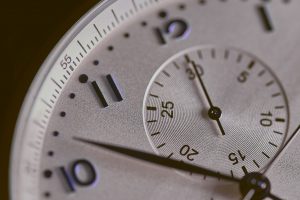Do patents or trade secrets better protect artificial intelligence?

The Interplay between Patents and Trade Secrets for Utilizing Artificial Intelligence
When it comes to effectively protecting valuable technology and products based on artificial intelligence (“AI”), it is important to understand the complex interplay between patent law and trade secret law. There are advantages and potential pitfalls related to both patents and trade secret law. For example, trade secret law can offer protection where patent law does not, and vice versa.
The Challenge is Securing an AI-based Patent
It is commonly said that an invention is only as valuable as the patent that protects the invention. However, this old adage becomes moot if you are unable to secure a patent. When it comes to inventors seeking a patent for a product that utilizes AI technology, the hurdles are quite challenging to overcome in the journey to obtain a USPTO-approved patent.
The difficulties associated with securing a patent for a product predicated on AI goes to the heart of the legal definition for a patent. For example, according to 35 U.S.C. § 101, a patentable subject matter is “any new and useful process, machine, manufacture, or composition of matter, or any new and useful improvement thereof.”
The difficulty associated with AI technology and a patent application is that many patent examiners with the USPTO often consider this type of technology to be more of abstract ideas. In an effort to address this issue, the USPTO established multiple categories to refine the definition, but the overarching theme amongst the categories set forth by the USPTO is that if a human mind can accomplish the task, then it is likely an abstract idea.
Trade Secret Law
If an inventor of an AI product or technology is rebuffed by USPTO when applying for a patent, it may be worthwhile to review relevant trade secret laws. Why? Because the protections afforded to trade secrets were bolstered by the enactment of the Defend Trade Secrets Act (DTSA). This federal law was passed in 2016 and contains an array of features focused on reinvigorating what had become a set of stale and ineffective laws that were not very effective in protecting trade secrets.
According to the DTSA, specifically 18 U.S.C. § 1839(3)(B), a secret only needs to have “actual or potential” value derived from the secrecy to be deemed a trade secret for a business. As a result, a trade secret can now cover a plethora of potential subjects, as long as the trade secret meets this new legal standard.
Navigating the Patent Application Process is Not Easy. Take Action by Contacting an Experienced Patent Attorney in Los Angeles Today
Securing a patent for an invention is extremely important. Nevertheless, the patent application process is complex and can be intimidating to navigate. This is where Omni Legal Group comes in. Whether you are looking for a provisional patent, non-provisional patent, design patent, utility patent, or plant patent application, you can always count on the professionals at Omni Legal Group to give you and your invention the care and attention it deserves. Omni Legal Group is a premier Patent, Trademark, and Copyright law firm located in Los Angeles. For further information or to schedule a consultation please contact Omni Legal Group at 855.433.2226 or visit www.OmniLegalGroup.com to learn more.
Read More








